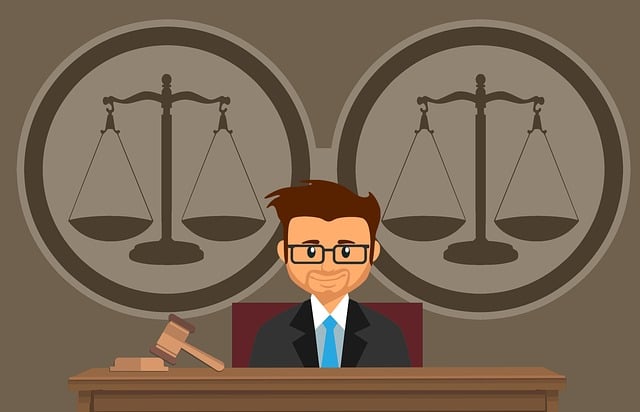Understanding child support rights and responsibilities is crucial for parents aiming to fulfill their parental duties fairly. Legal frameworks guide support decisions based on income, time with the child, and individual needs, ensuring children's financial security and well-being. Both parents share legal duties to provide for their kids, with primary custody often carrying a larger financial burden. This collaborative approach emphasizes meeting basic needs and shared decision-making, fostering stability for the child's growth. Navigating support responsibilities requires comprehending parental obligations and legal guidelines, ensuring fairness and active participation in a child's life. By adhering to these duties, parents prioritize their children's best interests, promoting a just outcome for all involved.
In the intricate web of family law, understanding child support rights and parental obligations is paramount for ensuring a stable future for children. This article delves into the legal duties surrounding child support, exploring who bears responsibility for financial contributions and how these obligations are navigated. From the perspective of both parents, we’ll uncover the rights and duties that underpin fair and just outcomes in child support scenarios, providing an overview that illuminates this critical aspect of family dynamics.
- Understanding Child Support Rights: A Legal Perspective
- Parental Obligations: Who is Responsible for Financial Support?
- The Legal Duties of Parents in Child Support Scenarios
- Navigating Support Responsibilities: Rights and Obligations
- Ensuring a Fair Outcome: Legal Protections and Guidelines
- Overview: Child Support Rights, Responsibilities, and the Law
Understanding Child Support Rights: A Legal Perspective

Understanding child support rights from a legal perspective is crucial for both parents involved in a dispute or those seeking to fulfill their parental obligations. Child support rights encompass a range of legal duties that ensure the financial well-being and overall support of a child, regardless of their living arrangement. In many jurisdictions, these rights are outlined in legislation, providing an overview of each parent’s responsibilities and the factors that determine support amounts.
The focus on child support rights isn’t merely about money; it’s about recognizing each parent’s role in a child’s life and ensuring stability. Legal frameworks often consider various elements, such as income levels, time spent with the child, and specific needs of the minor, to establish fair support responsibilities. This ensures that children receive the necessary resources for their development while also fostering a sense of security and equality among separated or divorced parents.
Parental Obligations: Who is Responsible for Financial Support?

In matters of child support, understanding the legal duties and parental obligations is paramount. Both parents bear the responsibility for the financial support of their children, regardless of marital status or custody arrangements. This obligation stems from the fundamental rights and duties associated with parenthood. Parents have a legal duty to provide for their children’s needs, which includes ensuring they have access to adequate food, shelter, clothing, education, and medical care.
When it comes to child support rights and responsibilities, the primary focus is on ensuring the well-being and stability of the child. The parent with primary custody often assumes a more significant financial burden, but both parents are expected to contribute based on their earning capacities and available resources. This support is not merely a privilege but an imperative, reflecting the legal duties that come with the privileges of parenthood.
The Legal Duties of Parents in Child Support Scenarios

In child support scenarios, both parents bear legal duties and responsibilities that are crucial for the well-being and financial security of their children. Understanding these child support rights and support responsibilities is essential for ensuring a stable and healthy environment for the child’s growth. Parents have the fundamental obligation to provide support, which includes meeting the child’s basic needs such as food, clothing, shelter, education, and medical care. This mutual commitment forms the basis of parental parental obligations support and legal duties support.
When it comes to child support understanding, it is important to recognize that these duties are not merely financial. Parents also have a legal duty to maintain open lines of communication and make joint decisions regarding their child’s upbringing, including significant life events and long-term goals. This collaborative approach fosters a sense of stability and continuity for the child, reinforcing the support rights overview that every child deserves a stable home environment and the resources necessary to thrive.
Navigating Support Responsibilities: Rights and Obligations

Navigating Support Responsibilities involves a deep understanding of both rights and obligations. In most cases, the primary legal duty lies with the parents to provide financial support for their children. This is an essential aspect of child rearing, ensuring the minor’s basic needs are met. Parents have the right to know and be involved in decisions regarding their child’s welfare, including the allocation of support funds. However, these rights come with responsibilities; both parents must contribute fairly towards the child’s upbringing, especially when separated or divorced.
The understanding of child support rights and obligations is crucial for ensuring a stable and secure future for the child. It fosters a sense of accountability among parents, promoting their active participation in their child’s life. This process involves legal frameworks that guide the determination of support amounts, considering factors like income, needs, and the time spent with the child. By adhering to these legal duties, parents can collaboratively navigate support responsibilities, prioritizing their child’s best interests.
Ensuring a Fair Outcome: Legal Protections and Guidelines

Ensuring fairness is at the heart of every child support scenario, and the law plays a crucial role in achieving this balance between parental obligations and a child’s rights. Legal protections and guidelines are in place to ensure that both parents fulfill their support responsibilities equitably. These measures aim to provide an overview of each parent’s rights and duties, fostering understanding and cooperation.
By understanding their legal duties, parents can navigate the complex landscape of child support more effectively. This includes ensuring that the child’s best interests are at the center of any agreement or court order. Both parents have a responsibility to contribute to their child’s well-being, and legal frameworks help maintain this balance, offering a fair and just outcome for all involved.
Overview: Child Support Rights, Responsibilities, and the Law

Child support is a crucial aspect of family law, encompassing a set of rights and responsibilities for both parents. Understanding one’s legal duties in this regard is essential for ensuring the well-being and financial security of children. When it comes to child support, every parent has specific obligations and entitlements that are protected by law. These include the right to seek support for their offspring and the duty to contribute financially based on their income and the child’s needs.
In many jurisdictions, the law dictates that both parents share the financial burden of raising a child after separation or divorce. This involves regular payments made by the non-custodial parent(s) to assist in covering the child’s expenses such as food, clothing, shelter, education, and healthcare. The amount of support is typically determined by calculating a percentage of the non-custodial parent’s income and considering factors like the child’s age, needs, and standard of living prior to separation. This process ensures that children receive the resources they need to thrive, regardless of their parents’ post-separation circumstances.






